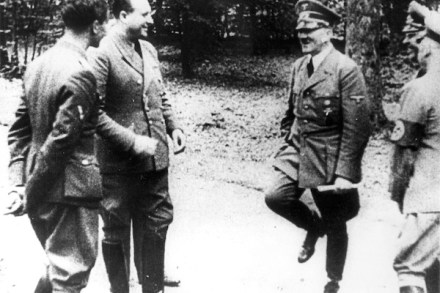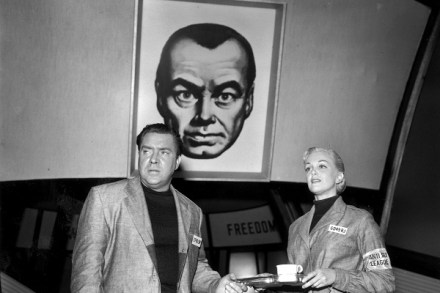A model of micro-history
More from BooksAdolf Hitler considered jazz a ‘racially inferior’ form of American black music, and banned it from the airwaves. Germany’s gilded youth flouted the prohibition by playing Duke Ellington in secret and greeting each other loudly in English: ‘Hallo, Old Swing Boy!’ Resistance was useless. The Brownshirts raided parties and even beaches in search of portable



























